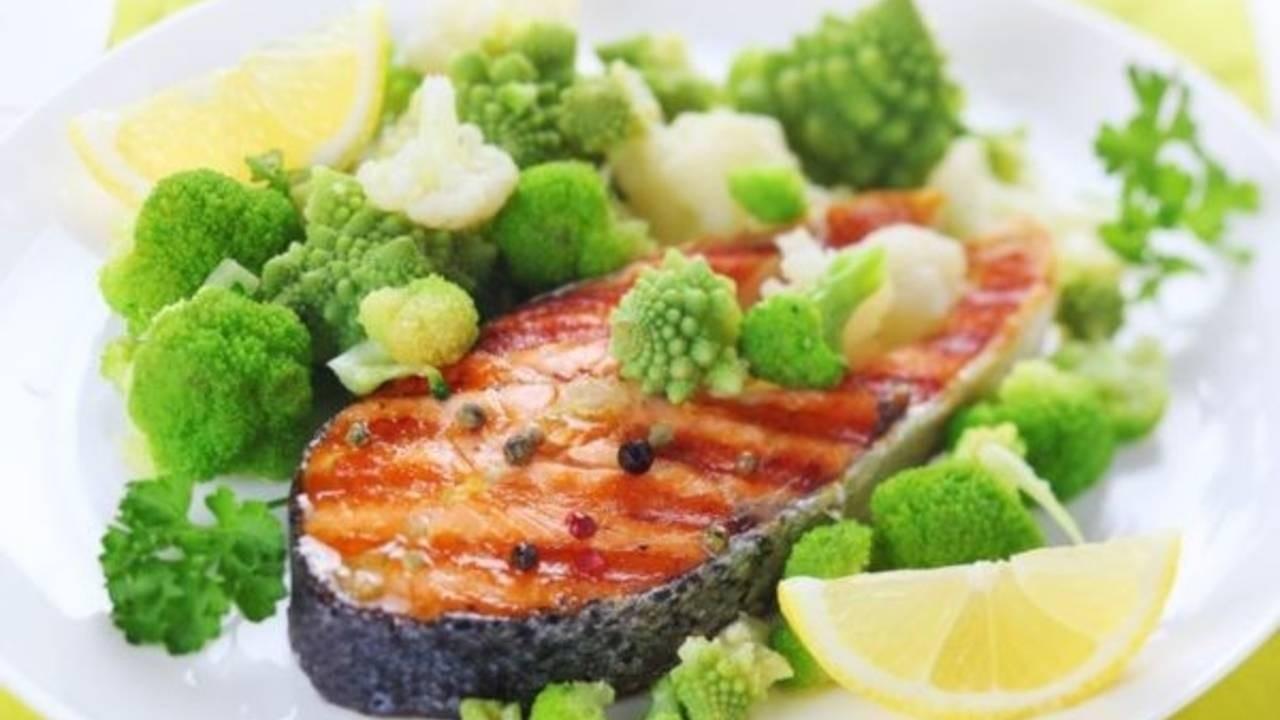Can I Eat Fish when Pregnant?

Can I Eat Fish when Pregnant?
With so much conflicting information out there, it's crucial to understand the nutritional benefits and potential risks of eating fish during pregnancy.
It is vital when pregnant that you learn about the shocking truth about mercury levels, the types of fish that are safe to eat, and the recommended serving sizes for expectant mothers.
Guidelines
Join me as I explore expert opinions, scientific studies, and guidelines from health organizations to help you make informed decisions for you and your baby.
Whether you're a pregnant woman or supporting someone who is, this post is packed with valuable information that you won't want to miss!
We all know the benefits of eating fish, but should you continue to eat fish when pregnant? Yes!
Essential Nutrients
Fish contains essential nutrients that are important to the developing fetal brain. The issue is with certain types of fish that you must avoid. Here is what you need to know.
Do you know that certain types of fish can also be contaminated with brain-damaging mercury and polychlorinated biphenyl?
This can make things get a little confusing when deciding to eat fish when pregnant.
Is Eating Fish when Pregnant Safe?
You may have read conflicting reports about eating fish during when pregnant. This only creates confusion about whether or not it is safe.
Let's start off by stating that there are numerous health benefits of eating fish. The big issue comes during pregnancy and knowing which fish are safe to eat and which fish you need to avoid.
In this article, my goal is to provide unbiased facts to alleviate some of your stress.
As always, I recommend you seek professional advice from a Dietitian when it comes to your pregnancy meal plans.
Fish Provides Many Nutrients
Fish provides many of the nutrients essential for the early development.
Fish have high levels of Vitamin D and protein which help promote a healthy pregnancy.
Also, there are two essential Omega-3 fatty acids present in fish called EPA and DHA. These are difficult to find in other foods but essential for the baby's development. Let's chat about fish can be harmful when pregnant.
Mercury in Fish
Mercury is found in water and also in the air that we breathe.
When fish swim in these waters contaminated with mercury and feast on other organisms, this mercury enters their body.
The big concern is that this mercury binds with the muscles of the fish and remains even when they are cooked.
It is for this reason that you should avoid certain types of fish, even if you cook them thoroughly.
Risks of Getting Too Much Mercury while Pregnant
The methyl-mercury from fish is absorbed by our body when you eat it. It moves across the placenta to the baby.
Even low levels of methyl-mercury can have an impact on the baby's brain and nervous system. As a result, it can have a negative impact on vision, language, motor skills, and cognitive skills like attention and memory.
What to Do if You Ate High Mercury Fish
Firstly, do not panic. The first step is to stop any further consumption and inform your doctor about it.
Your doctor could suggest chelation therapy by administering chelating drugs to help eliminate the metal from your organs.
Toxins and Fish
Many toxins and pollutants from contaminated water finds it way into the fish that we eat. These fish when ingested can affect human health.
Studies have shown that the neurological development of babies can be severely affected if the mercury levels remain high and unchecked.
When pregnant, your anxiety levels are high. You want to do everything right for baby. So when it comes to fish, you should eat certain fish during this period.
How Much Fish Should You Eat when pregnant?
The FDA (Food and Drug Administration) and EPA (Environmental Protection Agency) recommend two or three servings, i.e., 8 to 12 ounces (226 to 340 grams), of low-mercury fish every week.
Health Benefits of Eating Fish during Pregnancy
Fish is a great source of lean protein.
This is an essential amino-acid that supports fetal growth. It helps to create the baby's cells for hair, bones, skin, and muscles.
Fish are a great source of DHA, an Omega-3 fatty acid (salmon)
These are known to boost the baby's brain growth and activity.
The baby's growth is highly accelerated during the third trimester. Therefore, it is important to consume fish during this period.
Omega-3 is helpful to enhance their baby's memory development and also improve brain activity.
If you suffer from hypertension, eating fish can lower blood pressure.
A fish-rich diet reduces blood clotting and blood fat levels, which may lower the risk of cardiac arrest in pregnant women.
Fish You Can Eat When Pregnant
1. Farmed Rainbow Trout
2. Farmed Arctic Char
3. Wild-caught Pacific Sardines
4. Wild-caught Alaska Salmon
5. Farmed Oysters
6. Farmed Mussels
7. Tuna (canned-light)

What about salmon?
So, recently, there have been conflicting reports about salmon due to the possible high levels of PCBs (polychlorinated biphenyls) found in farmed salmon.
PCBs are toxic chemicals that have also been linked to cancer. So, to be safe, consume wild salmon or organically-farmed salmon.
Fish to Avoid when Pregnant
1. Shark
2. Atlantic Salmon
3. Chilean Sea Bass
4. Orange Roughy
5. Swordfish
6. King Mackerel
7. Tile fish (from Gulf of Mexico)
Also, when pregnant, you should avoid eating raw fish as they are more susceptible to food-borne illnesses.
This includes; sushi, ceviche, and sashimi since they are highly prone to the risk of food-poisoning.
Is Canned Tuna Safe in Pregnancy?
Canned tuna is termed as a high-risk fish. An occasional serving of tuna will not cause harm to your baby.
Avoid albacore tuna (white tuna) since it is known to have higher quantities of mercury. Aim for light tuna over its other varieties.
What about fish I catch myself?
Well, this is an unknown due to water quality. You should avoid eating fish that has been caught recreationally.
You can check the water information if possible before consuming it.
Cook Fish Properly
You should always cook fish properly. This helps in reducing any kind of exposure to potential contaminants that could cause harm to you or your baby.
Always buy fresh, well-refrigerated sea food.
Seal the fish in an airtight container and refrigerate it if you do not plan to use it immediately.
What about Sushi when pregnant?
Raw food should be completely avoided due to possible of contamination. To be safe, I would avoid sushi and other raw fish.
FDA Guidelines for Eating Fish during Pregnancy
The U.S. Food and Drug Administration and the U.S. Environmental Protection Agency advise pregnant women to eat more low-mercury fish.
The FDA recommends that pregnant women consume more fish because fish contains vital nutrients including omega-3 fatty acids, vitamins, protein, and minerals such as iron.
How Much Fish Should I Eat when Pregnant?
The FDA recommends eating 8 to 12 ounces of fish low in mercury per week. This is about 2 - 3 servings of fish per week.
Fish is High in Nutrients
Eating fish low in mercury provides important nutrients that can have a positive impact on growth and development as well as on general health.
Omega-3 fatty acids promote fetal brain and nervous system development and can also contribute to a healthy pregnancy by lowering the risk of preeclampsia.
So the question really comes down to knowing which fish you can eat when pregnant and which fish you must avoid due to high mercury levels.
Can I Eat Fish from a local River?
The important issue here comes down to water quality.
So, if you plan on eating fish from your local stream, river, waterway, or lake; then it is vital you check with your local advisories for those bodies of water to see if the water is contaminated or not.
Fish provides you with numerous health benefits. The important point is to know what fish you can eat, and what fish you must avoid in pregnancy.
Benefits of Fish in Your Pregnancy Diet
Fish is a fantastic source of protein, omega-3 fatty acids, and other vital nutrients, all of which are essential for the development of your baby's brain and nervous system.
Including fish in your pregnancy diet can contribute to your child's cognitive development and overall health.
Furthermore, fish are a low-fat option for the necessary protein intake during pregnancy, making it a healthy choice for expecting mothers.
Moreover, the omega-3 fatty acids found in fish, particularly DHA (docosahexaenoic acid), are crucial for fetal growth, especially in the development of the brain and eyes.
Regular consumption of fish that is low in mercury can also help increase birth weight and reduce the risk of preterm delivery, thereby supporting a healthy pregnancy outcome.
Top Safe Fish Choices for Pregnant Women
When it comes to selecting fish that are safe for pregnant women, the focus should be on those with low mercury levels.
Some of the top choices include salmon, sardines, trout, and herring, all known for their lower mercury content and high omega-3 fatty acid levels.
Other safe options include tilapia, cod, catfish, and pollock. It is recommended to opt for wild-caught fish when possible, as they tend to have a more favorable nutritional profile compared to farmed fish.
Shrimp, canned light tuna (not albacore, which is higher in mercury), and scallops are also good options for pregnant women looking to include a variety of seafood in their diets.
These options offer nutritional benefits without the high risk of mercury exposure, making them a safe and healthy choice during pregnancy.
Safe Fish Consumption During Pregnancy
Pregnant women should aim to consume 8-12 ounces of low-mercury fish per week, according to the FDA and EPA guidelines.
It's crucial to avoid raw or undercooked fish, such as sushi, due to the risk of parasites and bacteria that can harm both mother and baby.
Preparing the Fish
When preparing fish, ensure it reaches an internal temperature of 145 degrees Fahrenheit to kill any potential pathogens.
Additionally, pregnant women should avoid fish known for high mercury levels, such as shark, swordfish, king mackerel, and tilefish from the Gulf of Mexico.
It's also wise to check local advisories for any freshwater fish caught by family or friends, as local waters may have specific contamination concerns.
Mercury Levels in Fish
Mercury is a metal that can be found in certain fish at high levels, which can be harmful to a developing fetus's nervous system.
The key to safely consuming fish during pregnancy is to choose species that are typically low in mercury.
The FDA provides a chart categorizing fish into 'best choices,' 'good choices,' and 'choices to avoid,' which can be a helpful resource for pregnant women.
It's important to not only pay attention to the type of fish but also the source and preparation method.
For instance, smaller, younger fish generally have less accumulated mercury, and properly cooking fish can reduce exposure to other potential contaminants.
Creating Delicious and Safe Fish Dishes During Pregnancy
Incorporating safe fish into your pregnancy diet doesn't have to be bland or boring. There are numerous recipes that cater to the health and safety needs of pregnant women.
For example, baking or grilling salmon with a sprinkle of herbs can make for a nutritious and flavorful meal.
Creating fish tacos with tilapia, lettuce, tomatoes, and a light yogurt-based sauce can offer a tasty yet safe culinary experience.
Another great option is to make a fish chowder using safe fish varieties and plenty of vegetables.
Not only does this provide a comforting meal, but it also adds to the daily nutrient intake necessary for the health of both mother and baby.
Remember to always cook fish thoroughly and avoid adding too much salt or unhealthy fats to keep the dishes pregnancy-friendly.





